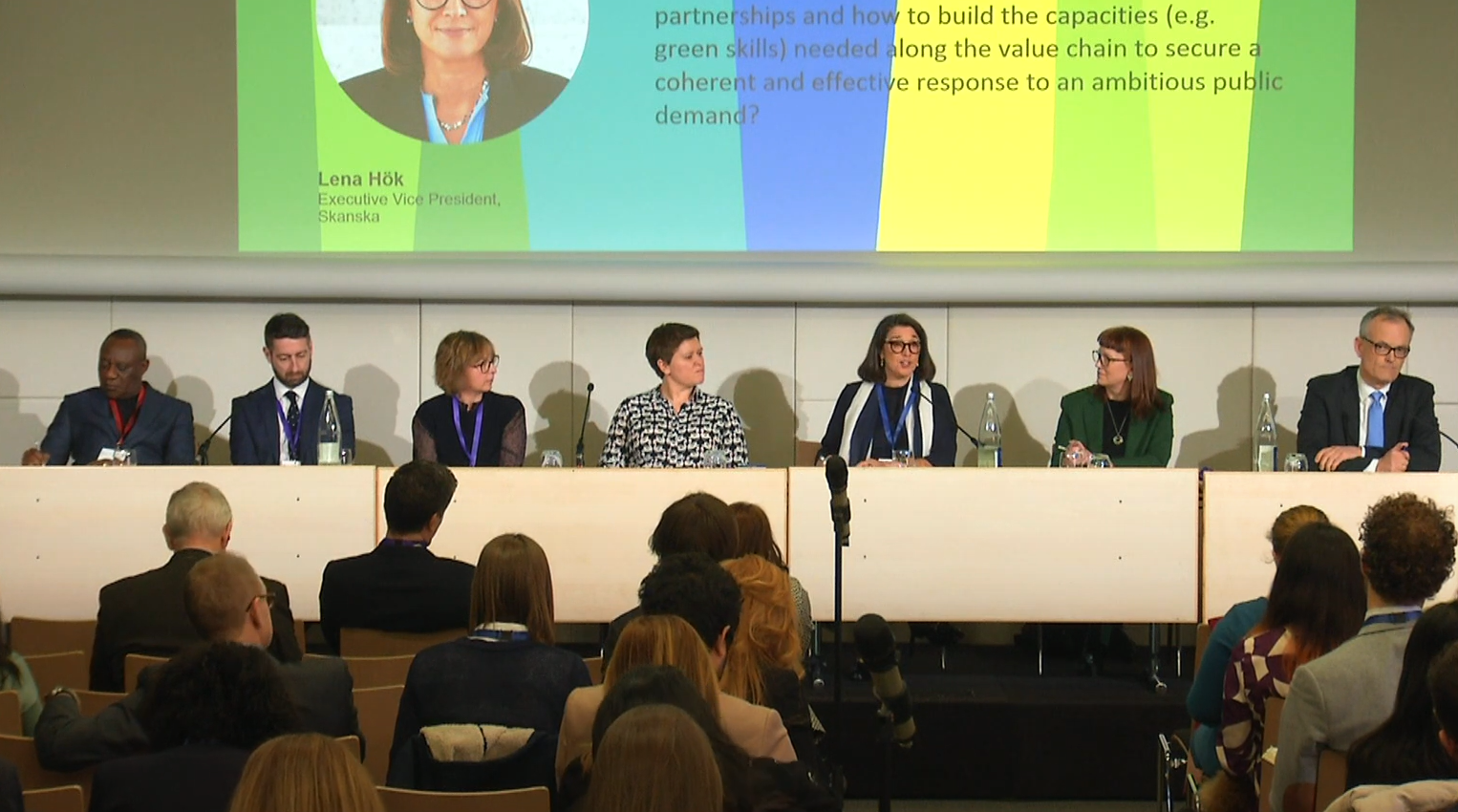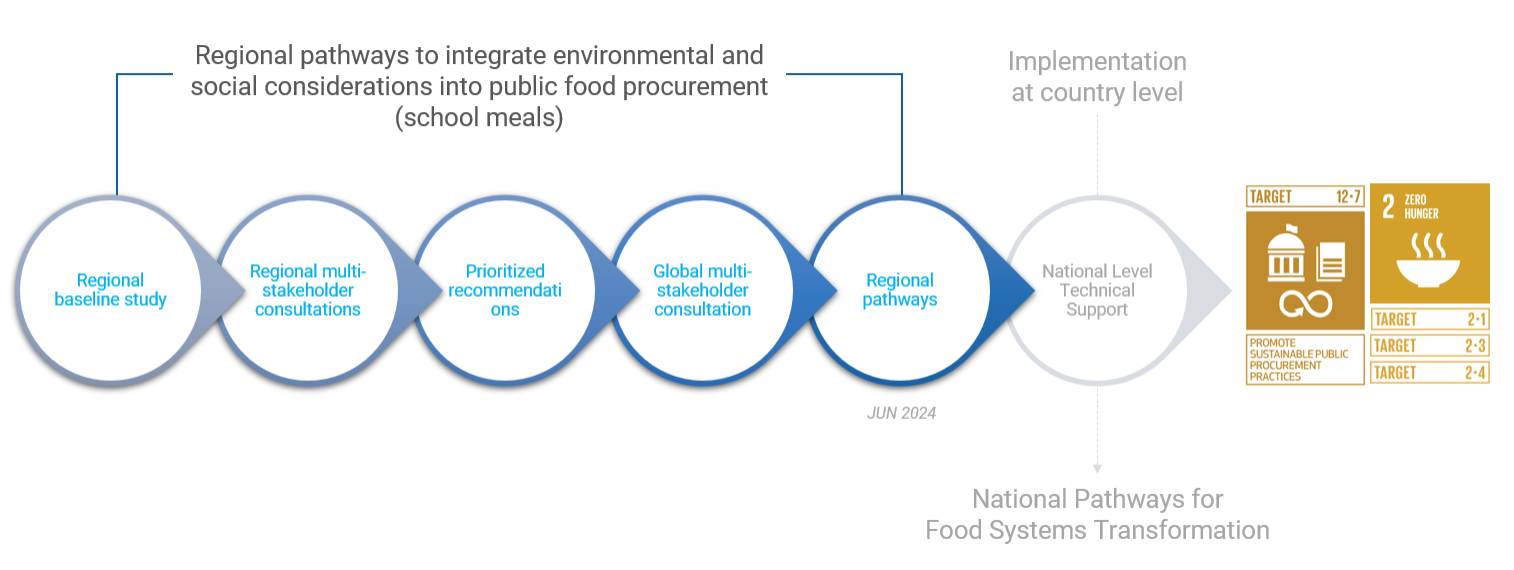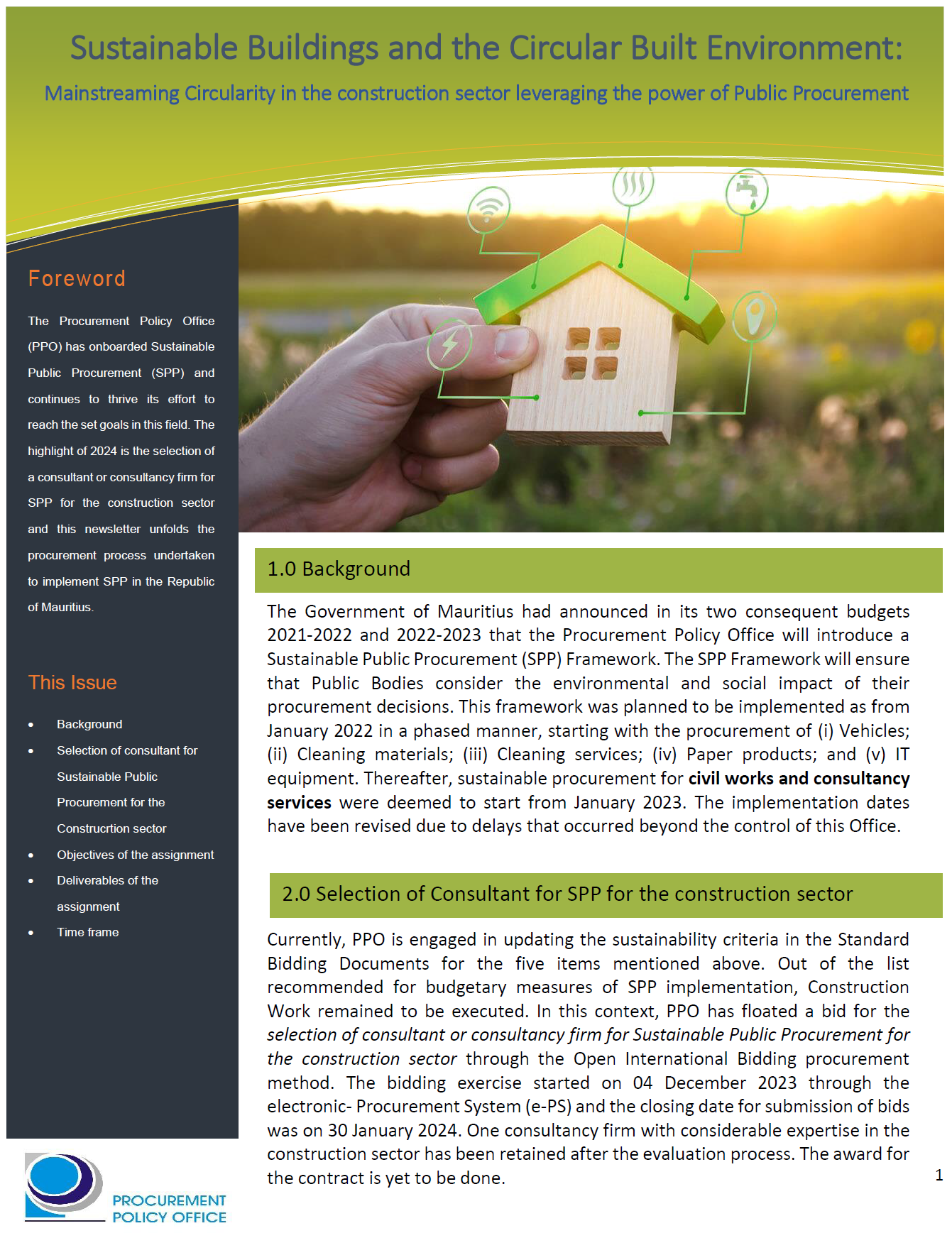10YFP SBC Flagship "Key Urban Interventions through Sustainable Social Housing (KUISHI)" - Seeking Funding
“Key Urban Interventions through Sustainable Social Housing (KUISHI)” aims to introduce sustainable building and construction practices into on-going or planned social housing programme in three Sub-Saharan countries: Ethiopia, Lesotho and eThekwini municipality in South Africa. Both Ethiopia and South Africa have been running long-standing social housing programmes, though utilizing varying fiscal and regulatory instruments, while Lesotho is embarking on large-scale housing sector reform.
KUISHI pursues four over-arching and interlinked objectives:
OBJECTIVE 1 Appropriate and effective sustainability measures integrated into regulatory framework of social housing programmes and widely applied, enabling more sustainable lifestyles
OBJECTIVE 2 Programme outcomes made accessible for broader range of countries through co-learning activities and update of existing guidelines to include lessons learnt in the Sub-Saharan context
OBJECTIVE 3 Increased financial capacity of municipalities to include SBC and sustainable lifestyle design approaches in development control and to provide adequate infrastructure for housing development
OBJECTIVE 4 Promote increased awareness and use of sustainable materials and designs
It is anticipated that 64% of the world’s population will live in cities by 2030 and 89 countries are expected to be more than 80% urban by 2050 - this will result in rapid housing growth which needs to recognise, and not contribute to, pressing environmental issues and resource constraints. Urban growth represents an opportunity for employment, improvements in health and education, a conferral of utility to the poor and other marginalised groups as well as an enhancement of identity and self-respect. At the same time, a business-as-usual model for housing delivery poses a grave danger of over-consumption and inefficient use of resources, social and spatial segregation and a suboptimal quality of life for generations. A large number of homes will also continue to be built by the informal sector with the total number of people living in slums set to grow from 881 million today , to over 1 billion people by 2030 , and 1.2 billion by 2050 in Africa alone .
This programme aims to address some of the underlying roadblocks hindering a more integrated shift towards sustainable housing solutions and lifestyles in three sub-Saharan African countries, each at different and representative stages of development.
These roadblocks include a lack of application of SBC measures in government-run housing interventions, a supporting policy framework, and a lack of capacity (financial, technical, methodological) in the development control sector to institutionally enforce or promote sustainable housing solutions.
KUISHI is currently in the resource mobilisation stage. As such, KUISHI's currently envisioned activities are outline activities which are intended to be tailored to the specific country context and priorities following a series of scoping missions once funding is secured.
The full proposal can be provided to Interested donors upon request.
The programme will move from assessment, to regulatory dialogue and tool development, to increasing the financial capacity of municipalities to promote SBC, SLE and SPP practices on a daily basis, enabling them also to provide the infrastructure needed for sustainable well-located housing developments.
The technical assistance delivered as part of KUISHI will roughly follow the diagnostic and procedural steps outlined in the SUSHI guidelines, and focus on various aspects of social housing design including financing, urban planning and design, approaches to enable sustainable lifestyles, culturally responsive low-impact building materials and designs, management and maintenance as well as adequate social service provision. The outcome will contribute to establishing, promoting, and enabling conditions for sustainable building, planning and construction policies and link to SDG Target 11.3 as well as Target 11.c.
The knowledge gained and working partnerships established throughout the practical implementation phase will form the basis for starting a broader dialogue on policy, regulation and public sector ability to enforce these regulations. This offers the opportunity to scale the impact of the programme and understand the practical constraints facing public institutions on a daily basis. The partnerships established in this phase of the programme will also form the basis for a Learning Conference at the end of this programme cycle.
When revenue collection is devolved, central government often retain funding which severely restricts municipalities’ capacity to consider ‘additional’ concerns such as SBC in development control. Capacities for collection are also frequently weak and inappropriate for the context. This component will help to foster enabling frameworks for SBC, to allow highly interested municipalities to be drivers of SBC, SLE and SPP in their respective jurisdictions.
Industrial construction materials such as cement, metal sheets, glass, etc. are now widely used in many countries yet can be expensive or difficult to access for isolated communities², their production cycles are complex and they are often poorly adapted to local climates. Design and architecture are often based on occidental standards or do not follow any type of rule in the informal sector.
KUISHI will address these issues, enhancing sustainability in the building supply chain and supporting the implementation of SBC and SPP on the ground. The present proposal seeks to secure support for two distinct phases:
1) an intensive programme development phase. This phase will consist of scoping missions to each of the three partner countries with the following objectives:
a) explain the programme objectives to relevant stakeholders;
b) gather further information on country specific challenges and opportunities to be integrated into KUISHI’s activities, leading to a non-uniform activity sequence for each of the partner countries.
c) establishing close relationships with line ministries, professional bodies, the private sector and academia to gain buy-in from all housing stakeholders
The programme development phase is presently scheduled to be undertaken in Q1/Q2 of 2017.
2) the programme implementation phase itself.
The programme is envisioned to run over a four year period.
Image

Project start date
02/02/2017
Project end date
02/02/2017


